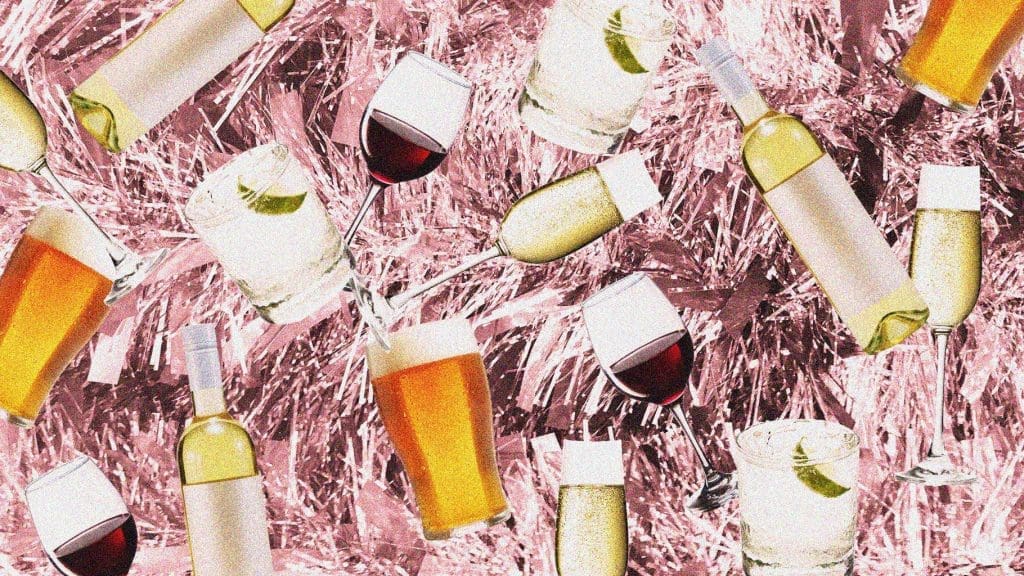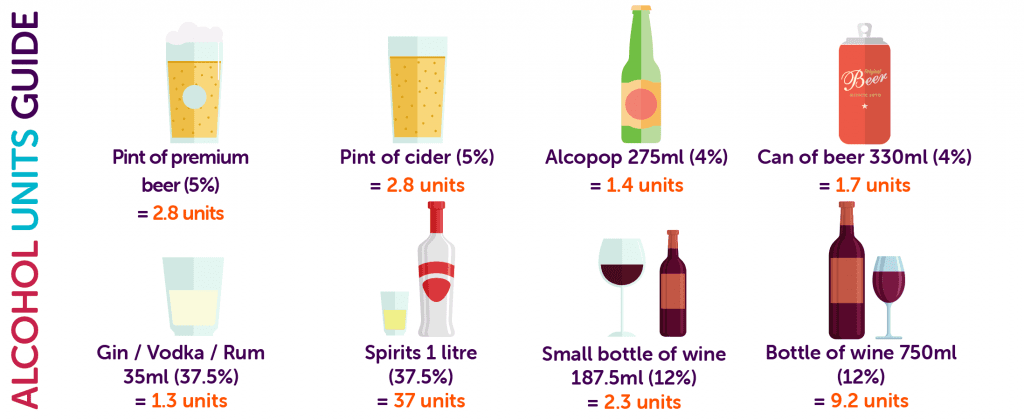In the UK, the festive period accounts for the most cases of drinking to harmful levels, with binge drinking spiking on Christmas day and New Years eve.
At Delamere we are well aware that this Christmas will be unlike any other our generation have known. With many more people feeling additional pressure financially and socially due to the coronavirus pandemic. This toxic mix of a stressful year, combined with the need to escape reality if only for a few days, will give many the excuse to overindulge in alcohol, even more so than they would normally at this time of year.

Our colleagues here at Delamere’s purpose built addiction treatment and behavioural wellness centre want as many people to enjoy christmas as possible and not let alcohol become the main focus.
Whilst we at Delamere advocate an abstinent based alcohol programme for those unable to control their drinking, we appreciate that most individuals ( even those that suffer with an alcohol use disorder) will intend to drink safely over the coming month.
We have therefore compiled the following list of safer drinking tips to use as a guideline to ensure that your health and sanity remain intact.
10 top tips to safer drinking over Christmas
- The Chief Medical Officers low risk drinking guidelines state that regardless of age or gender, you should consume no more than 14 alcoholic units a week and that these units should be spread out evenly over seven days. To put this in real terms, 14 units is the equivalent to 6 pints of standard 4% lager, 6 standard glasses of 13% abv wine or 14 shots of a spirit. If you follow the safer drinking medical recommendations, you can still enjoy alcohol but without the risks associated with drinking too much.
- Try to incorporate alcohol free days over the festive period. Over Christmas and New year there always seems an ‘excuse’ or ‘reason’ to have a drink every day. It is important to have alcohol free days to give your liver a rest and allow your body to flush out alcohols toxins. Drinking daily, especially when more than a couple of units, causes your liver to work less efficiently. The more alcohol you consume the bigger the toll it will take on your body resulting in you feeling sluggish and suffering from low mood.
- Be aware of the alcohol content in foods you consume. Traditionally alcohol is added to many festive foods such as chocolate, Christmas pudding, sauces, deserts and even gravy. Whilst the alcoholic content is usually quite low, combining these foods with alcoholic drinks soon makes the units stack up
- Avoid drinking on an empty stomach. Eating a decent meal before drinking will slow down the absorption of alcohol, you will also be inclined to drink less if your stomach is already full. Alcoholic drinks such as wine and spirits are very acidic and can cause harm to your stomach’s lining when consumed on an empty stomach or in large amounts.
- Instead of automatically reaching for whatever alcoholic drink is available to feel part of the celebrations, try some mocktails (alcohol free cocktails). There are many kits and recipes out there where you can experiment. Make it fun by challenging the whole family to produce the tastiest mocktail. This will take the focus off alcohol and you may even find a drink that you prefer over alcoholic beverages.
- If you are drinking – do not drive. Drink driving causes many fatal accidents every year. If you have consumed alcohol the night before, remember that it takes the liver on average 1 hour to process 1 unit of alcohol. When you binge drink it takes even longer as the liver struggles to cope with the backlog of alcoholic units. Driving the morning after and in some cases even the next day, you could still be over the drink driving limit. If you want an alcohol free day, volunteering to be the designated driver is the perfect excuse not to drink.
- Take steps to ensure your safety whilst drinking. When we drink alcohol, our inhibitions and sense of judgement are impaired. This can easily lead to making spur of the moment decisions which are later regretted. If you are going out drinking, make sure that someone knows where you are, what time to expect you back and that you have pre arranged a safe mode of transport home. This applies to both men and women, both sexes are very vulnerable whilst under the influence of alcohol.
- If you are attending a family gathering where there is likely to be a lot of alcohol, take your own soft drinks or low/no alcohol drinks. You can then either stick to drinking these or alternate between alcoholic drinks. Don’t rely on others to provide you with an alternative to alcohol, it is always best to be prepared and take your own. If you are worried family will pressurise you into to drinking more than you would like, it is very unlikely that they will even notice or care if you are alternating or drinking a zero alcohol alternative.
- Avoid ‘preloading’ before going out. Preloading is a term used whereby someone drinks alcohol at home to get themselves in the party mood prior to going out. This can be very dangerous and easily lead to a night of binge drinking and the risks that come with it. Instead make sure that you are well rested, well hydrated and have eaten a decent meal in preparation. You are way more likely to be-able to keep track of the amount of alcohol you consume this way.
- Avoid stocking up on alcohol. Traditionally many people stock up on vast amounts of alcohol just prior to the festive period with the intention of having a selection of different alcoholic drinks to offer guests. The risk that comes with this is that there will be a constant supply of alcohol in your home that will be all too easy to drink. You are also much more likely to mix your drinks which can lead to losing control of the amount of alcohol you consume. Instead have a selection of drinks that are of standard strength in units and a selection of non alcoholic drinks that you can alternate with.

Do you or someone you love have a problem with alcohol?
Whilst most people are able to control the amount of alcohol they consume and drink in moderation, there are proportion of people that even with the best intentions, have little or no control of the amount of alcohol they consume once they start drinking.
Even with a plan in place to help them stick to safer drinking over the Christmas period, they will find that they are unable to adhere to it. The reason for this is that they suffer from what is known as an alcohol use disorder (AUD). Alcohol use disorders come in various forms and affect people who suffer in different ways.
Whatever form an alcohol use disorder presents itself in someone, whether it be losing control of the amount they drink once they start (binge drinking), not being able to go alcohol free, undergoing a drastic change in character whilst under the influence of alcohol, or constantly topping their alcohol levels up (alcohol dependence), they will display a distinct lack of control when it comes to alcohol.
Having a problem with alcohol not only affects the person afflicted but also has a very negative impact on those that are closest to them. Once an alcohol problem has reached a certain stage whereby the individual has little or no control around their alcohol intake, they often require professional intervention and treatment in order to recover.
If alcohol is costing your or a loved one more than just money and is affecting other areas of daily life such as physical, mental and social health, call our team at Delamere for a free of charge alcohol assessment and information on how we can help.

We wish everyone a safe and happy Christmas!






